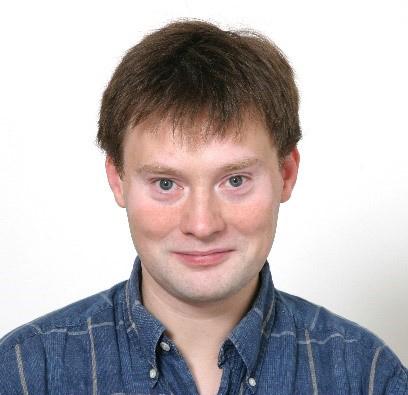
Casper Tybjerg

Casper Tybjerg, Associate Professor at the University of Copenhagen, is a scholar of film historiography and Danish and international silent film. He holds Master’s degrees in Film Studies and Medieval Studies from the University of Copenhagen, where he wrote his dissertation on Danish silent film.
Tybjerg has been an associate professor at the University of Copenhagen since 2000. He has assisted in the DFI’s efforts to restore various Danish silent films and has co-organized several retrospectives, including at the Pordenone Silent Film Festival. He has written numerous articles on film history and is currently completing a book on the theory and method of film historiography, focusing on the work of Carl Theodor Dreyer.
His research for this project will look at the cinematic style of Danish and German film in the silent film era as an example of cultural exchange, with a particular focus on developing a conceptual apparatus to accurately and lucidly describe mutual transfers and mergers.
See Casper’s page at the University of Copenhagen: https://mef.ku.dk/ansatte/?pure=da/persons/117812
Frida Lind Stokkebæk
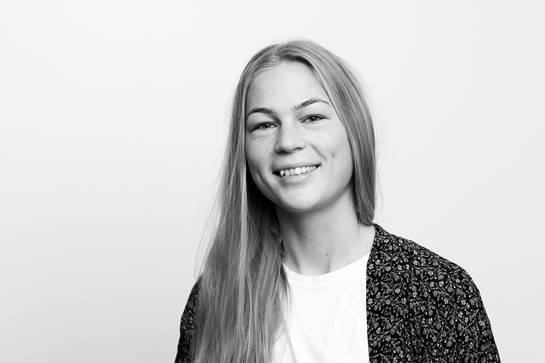
Frida Lind Stokkebæk is a graduate student of Film and Media Studies at the University of Copenhagen, with a minor in Anthropology and Gender Studies. Since April 2018, she has worked as a student assistant in Archives & Digitization at the DFI. She is a research assistant on this project..
Helle Kannik Haastrup
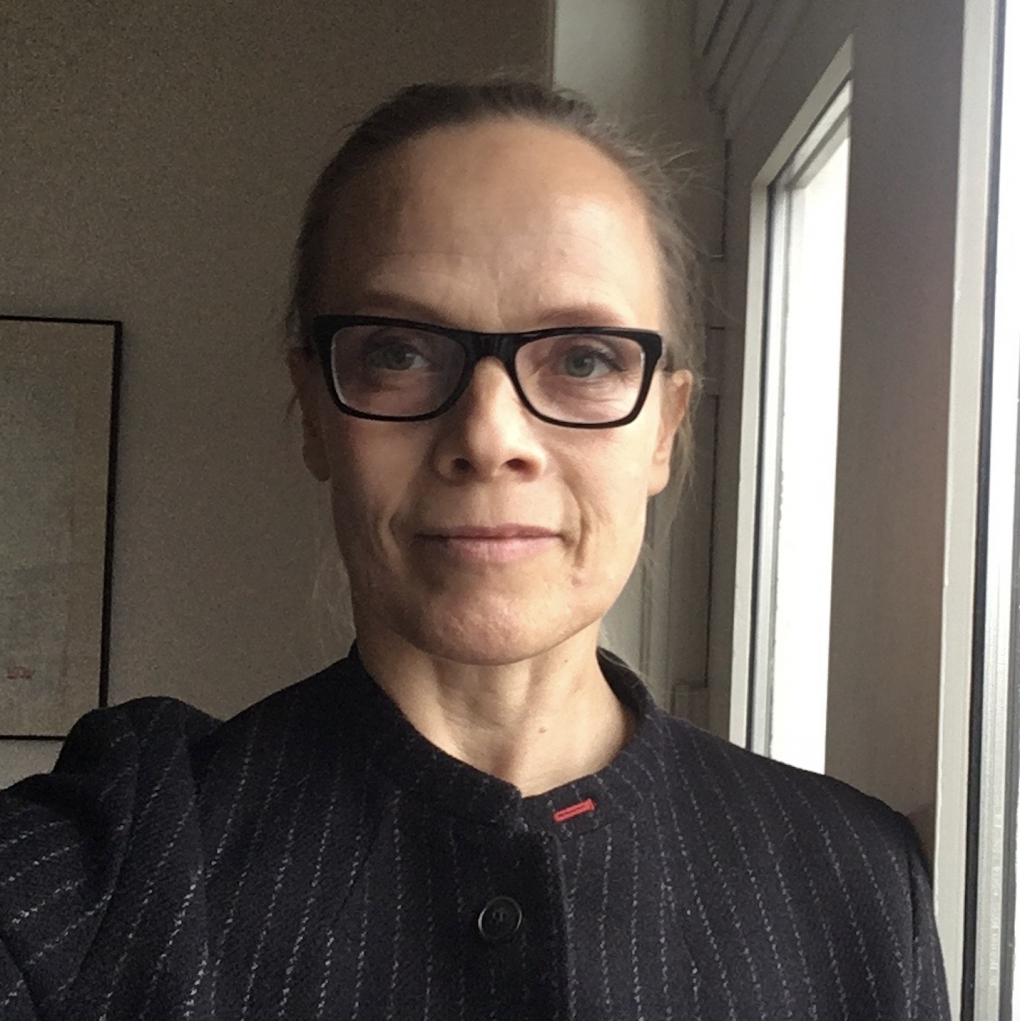
Helle Kannik Haastrup, Ph.D., is Associate Professor of Film and Media Studies at the University of Copenhagen’s Department of Nordic Studies and has been a visiting scholar at NYU’s Tisch School of the Arts. She has published the monograph Genkendelsens Glæde: intertekstualitet på film (The Joy of Recognition: Intertextuality in Film) (2010), as well as articles in Danish and international journals. She is a co-founder of the Nordic Celebrity Studies Network, and as Chair of the Film Studies Section of ECREA she has co-organized conferences on European film and film culture.
Her research fields are film aesthetics and culture, cross-mediality and celebrity culture. Her celebrity-culture research concentrates on politics, science and film culture, with a particular focus on climate activism by celebrities, feminism, film promotion on social media and on the concept of the movie star analyzed as a cross-media construction.
Haastrup’s subproject in A Common Film Culture? looks at celebrity culture, with an aesthetic and cross-media focus on the film star Asta Nielsen.
See Helle’s page at the University of Copenhagen: https://nors.ku.dk/ansatte/?pure=da/persons/96027
Isak Thorsen

Isak Thorsen, who holds a Ph.D. in Film Studies from the University of Copenhagen, primarily researches Danish film. He is the editor and writer of the Danish entries in Historical Dictionary of Scandinavian Cinema (Scarecrow Press, 2012). His book Nordisk Films Kompagni 1906-1924: The Rise and Fall of the Polar Bear (John Libbey) was published in 2017. He has contributed to the anthologies 100 Years of Nordisk Film (DFI 2006) and International Western Films: Re-Locating the Frontier (Scarecrow Press, 2013), and written articles for journals including Film History, Kintop, Scandinavian-Canadian Studies, 16:9, Journal of Scandinavian Cinema and Kosmorama. With Claire Thomson and Pei Sze Chow, he is currently editing an English-language anthology on the history of Danish film (University of Edinburgh Press, 2020). He teaches Film Studies and related subjects at the University of Copenhagen.
He will examine Danish-German relations in connection with UFA’s takeover of Nordisk Films Kompagni’s business network in Germany and Central Europe at the end of World War I.
See Isak’s page at the University of Copenhagen: https://mef.ku.dk/ansatte/?pure=da/persons/148546
Jannie Dahl Astrup
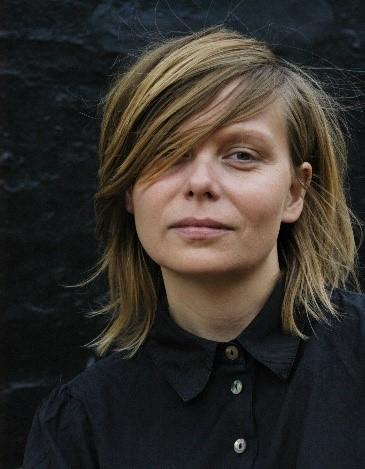
Jannie Dahl Astrup, who holds a Master’s in Film Studies from the University of Copenhagen (2012), is writing her thesis on Palladium in the silent film age. She is employed as a Ph.D. fellow at the DFI, where she is continuing her research into the history of the Palladium film company. Her project is a business-historical study of Palladium in the silent film age and the transition to sound film, with a particular focus on the Danish studio’s actions in the German market. The aim is to explore, describe and analyze Palladium’s role in a transnational film culture, where cross-border migration of talents and films was a fundamental fact of the business.
Dahl Astrup has freelanced as a film and TV critic, both as a student and later on, contributing to Soundvenue, Apropos, Information and Kosmorama. She was previously a project assistant at the DFI’s Film Archive, where she worked on cataloguing the collection, including a collection of films from the Museum of Danish Resistance. Moreover, she is a driving force behind the film club Den Røvsmalle Biograf in her hometown of Odense
.
Lars-Martin Sørensen
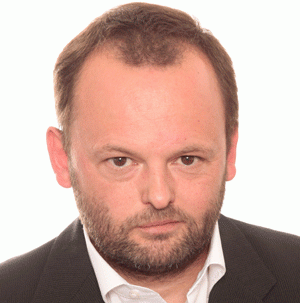
Lars-Martin Sørensen, project manager of A Common Film Culture?, is Head of Research at the DFI. He holds a Ph.D. in Film Studies from the University of Copenhagen. His dissertation, Censorship of Japanese Films during the US Occupation of Japan, is published by Mellen Press, 2009. He is Editor-in-Chief of the DFI’s academic film journal Kosmorama.
Sørensen’s research has mainly been on the history of Japanese and Danish film. In addition to numerous articles on Japanese film, he has published the monograph Dansk film under nazismen (Danish Film during the Nazi Era, Lindhardt og Ringhof, 2014), along with several articles on the subject in international journals. In September 2019, he is publishing his book Sidste nyt fra Berlin (Breaking News from Berlin), a media-history study of how Danish correspondents in Berlin reported on the rise of the Third Reich up to the outbreak of World War II.
In this project, Sørensen examines the extent to which, and at what particular times, national divisions between Danish and German film were articulated in trade journals, by film censors and in the production milieu.
See Lars’s page here: https://www.dfi.dk/viden-om-film/forskning/lars-martin-sorensen-english
Lisbeth Richter Larsen
Lisbeth Richter Larsen, who holds Master’s degrees in Film Studies and Rhetoric, has been working at the Danish Film Institute since 1999. She handles communication tasks in the area of film history, is the editor of several DFI websites, and for years has been engaged in disseminating and making available the Danish film heritage. She has edited and contributed to several books published by the DFI, and continually publishes articles and texts on Danish film history in Kosmorama and international journals, and on dfi.dk.
Major projects and efforts include: 1999-2001, cataloguing the DFI’s extensive special collection from Nordisk Films Kompagni. 2002-2003, developing a catalogue of 230 silent-film actors, directors and directors of photography. 2005-2006, book and seminar in connection with Nordisk Film’s 100th anniversary. 2008-2010, project manager and editor of Carl Th. Dreyer: The Man and His Work, a comprehensive website about the director and his films. 2012-2013, project manager and co-editor of the relaunch of the film journal Kosmorama as an online journal. 2013, online editor of Sculpting the Past – a foundation-sponsored cultural-heritage and exhibition project with online dissemination of a number of newly digitized Danish documentaries. 2013-2015, project manager of Danmark på film (Denmark on Film), a streaming website for historical footage and documentaries. 2015-, editor of Danmark på film.
In this project, Lisbeth is working to uncover the partnership between Asta Nielsen and Urban Gad, and the distribution of labour between Gad and his DPs to illuminate his qualities as a filmmaker in light of his understanding of the new medium, as conveyed in his 1918 book, “Filmen – dens Midler og Maal” (Film: Its Means and Ends).
Palle Schantz Lauridsen
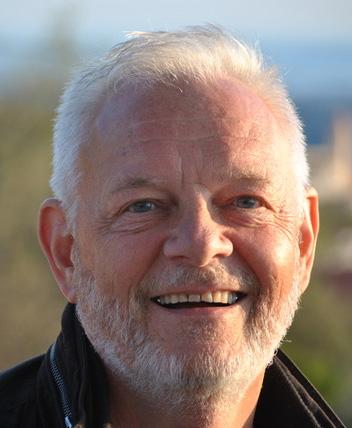
Dr.Phil., Ph.D. in Film Studies, associate professor at The Department of Nordic Studies and Linguistics, University of Copenhagen.
During the last decade, Lauridsen has done research primarily within the field of popular culture. One of the results of this research is the doctoral dissertation Sherlock Holmes findes ikke. Sherlock Holmes i danske mediekulturer, 1891-2017 (2020) (Literally: “Sherlock Holmes does not exist. Sherlock Holmes in Danish Media Cultures, 1891-2017”). Before dedicating himself to the Holmes dissertation, Palle Schantz Lauridsen worked with film theory, film sound, the relation between the modern city and cinema as well as the culture of movie theatres.
Palle Schantz Lauridsen’s subproject within the framework of A Common Film Culture? elaborates further on the topic of his dissertation and takes as its point of departure the fact that as early as around 1910, the Sherlock Holmes character was transnational – not just spreading from its English ‘epicentre’ but also present in encounters between Danish and German film cultures. German film workers were active in Danish film production and vice versa, and Holmes-movies from the two countries crossed the border between them.
Further information at Palle’s official University home page: https://nors.ku.dk/ansatte/?pure=da/persons/3870
Stephan Michael Schröder
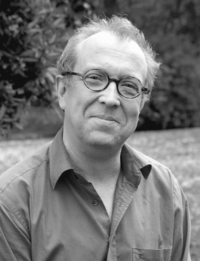
Stephan Michael Schröder has been Professor of Scandinavian Studies at the University of Cologne since 2005. He studied Nordic Philology, Nordic History and Political Studies in Kiel, Minneapolis and Odense. In the late 1990s, he spent two years researching archives in Copenhagen, including the DFI’s collections. He is a specialist on the relationship between Danish literature and film in the silent film era. His publications include Ideale Kommunikation, reale Filmproduktion. Zur Interaktion von Kino und dänischer Literatur in den Erfolgsjahren des dänischen Stummfilms 1909–1918 (Ideal Communication, Real Film Production: On the Interaction of Film and Danish Literature in the Successful Years of Danish Silent Film, 1909–1918), two volumes (2011). He is a member of the Kosmorama advisory board.
Representing the German side of the A Common Film Culture? project, Schröder is working on theorizing Danish-German relations in the silent film era and researching German screenwriters working in the Danish film industry.
See Stephan’s page at the University of Cologne: http://skanfen.phil-fak.uni-koeln.de/3040.html?&L=7